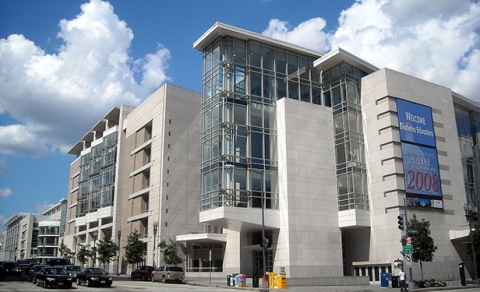Smart City Networks Adopts SIP Trunking Nationwide

Smart City Networks, a provider of technology and telecommunications services for the convention industry, has embarked upon a process to convert phone lines at 39 convention centers and venues to SIP trunking in the next year.
The upgrade is expected to improve reliability, performance and cost at these facilities, according to Smart City officials.
While not the in-demand technology in the current industry landscape, phone service in public assembly areas can play a key role in emergency response situations, as demonstrated in Houston with Hurricane Harvey, Florida with Hurricane Irma and New Orleans with Hurricane Katrina.
The system conversion project, which is approximately 90 percent complete, entails replacing existing phone lines that use Primary Rate Interface (PRI) trunking – a dedicated line for only voice transmission – with Session Initiation Protocol (SIP) trunking, which utilizes Voice over Internet Protocol (VoIP) that allow the lines to be used for data and voice.
Trunking refers to the method used in data communications transmission systems that allows multiple people to access the network simultaneously by sharing multiple lines.
According to David Langford, Smart City vice president of technology, the company began the SIP conversion in late 2015, after an extensive vendor selection process.
“SIP allows for our Voice systems to take advantage of the already implemented redundancies built into our IP networks, as well as the monitoring capabilities of our IP NOC,” Langford explained.
He continued, “Call quality, reliability and connection rates are also improved. Additionally, this allowed us to aggregate all voice traffic nationwide to one vendor, meaning we could leverage our total volume nationally versus site-by-site.”
This new system is unlike PRI trunks, which have limited automated redundancy, and require additional hardware and knowledgeable PBX technicians.
“The most noticeable benefits to the facility managers in Smart City facilities will be the seamless communication provided by this modern, digital approach and the significant cost savings to convention centers when SIP trunking is implemented,” Langford added.
A few of the convention centers that have already undergone SIP conversion or are about to reach completion include:
- Washington State Convention Center
- San Diego Convention Center
- Miami Beach Convention Center
- Duke Energy Convention Center
- Walter E. Washington Convention Center (in progress for completion in Oct.)
- Anaheim Convention Center (in progress for completion in Oct.)
The project is expected to be completed within the 3Q of 2017, a move that promises to set the standard for phone service in convention centers across the country, according to Smart City officials.


Add new comment